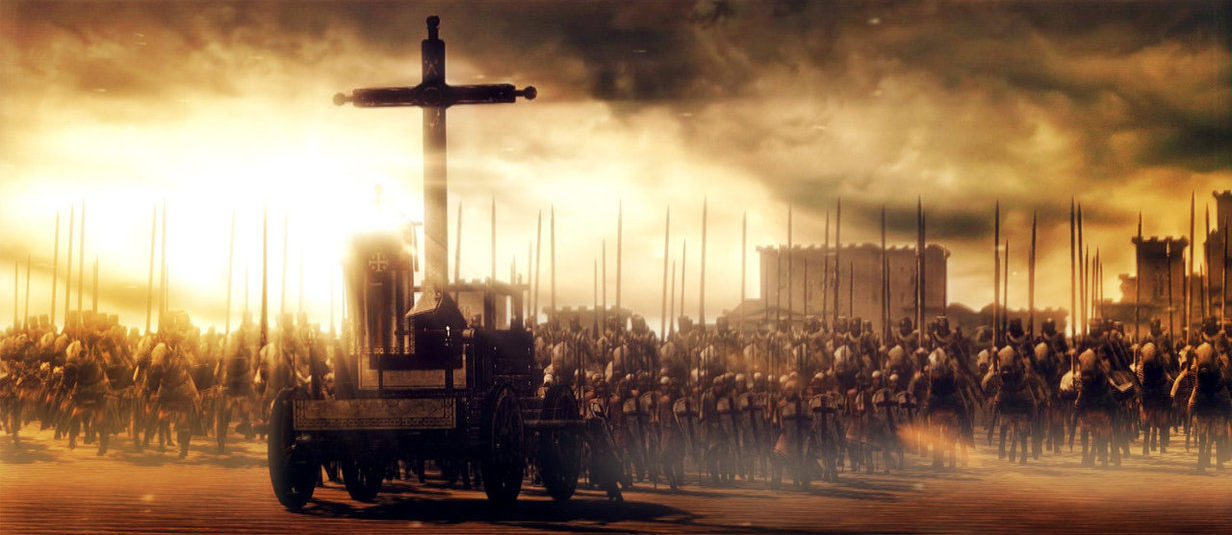
In discussing the harmonization of violence with love for one’s enemies, I mentioned Sean Finnegan’s defense of an absolutist position on nonviolence. A separate point that Sean makes, which surfaces somewhat frequently even in non-pacifist circles, is that the Old Testament’s emphasis on warfare and nationalism is to be starkly contrasted with the higher precepts of a peace-loving internationalism that are to characterize the church age.
One problem of this view, which is enormous even though I’ll state it only briefly, is its confusion concerning the nature and applicability of the moral (natural) law. The moral law is eternal and unchangeable, so the fact that God sanctioned and even commanded warfare and nationalism for the ancient Israelites both demonstrates that such actions and attitudes are permissible-in-themselves and establishes a presumption that they can be permissible today, provided the relevant circumstances obtain. To state it simply, if those actions were sins-in-themselves, God wouldn’t have sanctioned them. But then we should be very careful to call them a sin today, or to suppose that God radically changed His opinion on them and declared them to be universally sinful in our age.
A more important rhetorical point is to directly challenge this appeal to a trajectory from the warfaring nationalism of ancient Israel to the purer peaceniking of the church age. This trajectory misses the nature of Christ’s exaltation at the expense of a hyper-focus upon his humiliation.
While Jesus manfully and heroically sacrificed himself to reconcile us to God, he also did so to ascend to a state of immense power and dominion, ruling all men by God’s Spirit as universal Lord. From this position he proclaims, through his representatives, that all men are to submit to him – or die. All men are to renounce their previous spiritual allegiances to other gods, instead bending the knee to the risen and exalted Christ, whom the Father has tasked with universal judgment. This is the substance of the Great Commission, and it’s as brutal as it portends: in the eschaton, especially in Revelation, we see the fullness of these retributive threats carried forth with boundless severity and bloodshed. Jesus is charged with the right to judge all men, casting his enemies into a lake of fire and treading the winepress of the fierceness and wrath of almighty God. Revelation presents us with a picture of victory, and with this victory the suffering and death of God’s and Christ’s enemies.
This is a central reason Christ underwent his state of humiliation. The punitive privileges of his office of universal Lordship were central to “the joy set before him” as he meekly endured cruel persecution to the death. The commission of violence upon his enemies was one end for which his docility and gentleness were the means.
Does this mean that Jesus was being deceptive, much like a leftist who cries “muh freedom of speech” only to retract it for right-wingers once ascendant? No, as we’ll see expounded in the next post.
But it does mean that we should be wary of cucked ideologues who proclaim nonviolence, especially nonviolence with absolutely no exemptions, as a purer and higher state towards which the lowly Old Testament moral trajectory eventually leads. That arrow will lead them right towards the beautifully brutal judgment we anticipate in the eschaton.
| Tweet |
|
|
|




